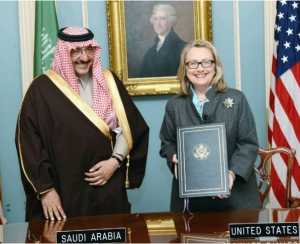Let me start this post by saying I think it is absolutely appropriate for Eric Holder to have recused himself from the UndieBomb 2.0 investigation, in part because — as someone read into the UndieBomb 2.0 operation, he was interviewed by the FBI (though so was James Cole, who is now in charge of the investigation), and he turned over his own phone contacts to the FBI — but also because top Administration officials like John Brennan at least should be under close scrutiny in this investigation.
Nor do I think, in his recusal, Eric Holder did anything in bad faith. I have zero reason to believe Holder is tampering with this investigation, in any way shape or form.
But Jeebus, Holder is doing this entire recusal thing wrong.
That’s true, first of all, because with a rabid Congress (at the time he recused from the investigation and now) accusing him of wrongly delegating this investigation to Ronald Machen in an investigation that could net incredibly powerful people as suspects, Holder did not write his recusal — or a delegation of authority of Attorney General powers — to James Cole, who is overseeing the investigation.
Now, Holder claims not to remember whether he memorialized his recusal in past cases, including the John Edwards investigation — the most high profile case in which he has recused. And though George Holding, who conducted that investigation and now represents the Raleigh, NC, area in Congress, was in the room, I’m not sure they clarified whether he had written anything down there, either. Holder was, however, very clear about what authorities he delegated to Patrick Fitzgerald when he investigated the John Adams Society, which led to the prosecution of John Kiriakou, having sent 3 letters (1, 2, 3) memorializing the limits of Fitz’ authority.
I think part of the problem is that Holder didn’t really appoint special counsels to investigate this matter, even while he made a big deal of appointing the people who — US Attorney for DC Ronald Machen’s appointment rather then US Attorney for Eastern District of VA Neil MacBride aside — would have been investigating it anyway. Dumb. Congress was screaming for some kind of formality, and Holder didn’t establish that formality.
And then there’s the journalist-subpoenaing precedent of the Plame investigation where Fitz several times got letters clarifying his authority. The first of those reads,
By the authority vested in the Attorney General by law, including 28 U. S .C. §§ 509, 510, and 515, and in my capacity as Acting Attorney General pursuant to 28 U.S.C. § 508, I hereby delegate to you all the authority of the Attorney General with respect to the Department’s investigation into the alleged unauthorized disclosure of a CIA employee’s identity, and I direct you to exercise that authority as Special Counsel independent of the supervision or control of any officer of the Department.
This came in handy later in the investigation when Libby’s lawyers challenged Fitz’ authority.
Then, Holder’s recusal hasn’t been very strict. Most troublingly, Eric Holder reviewed the letter James Cole sent to the AP (though Holder saw a draft which, according to his press conference, included things like details on the specific scope of the subpoena that don’t appear in the final letter). NPR’s Carrie Johnson asked him about this.
Johnson: Is that normal practice when you’re recused from a case?
Holder: No, I just wanted to see the le–I saw I mean I saw saw the draft letter this morning. And I just wanted to have an opportunity to see what it looked like so I’d have at least some sense of the case in case there were things in the letter that I could talk about with the press.
Reviewing this letter — particularly before changes got made to it!! (changes which appear to have deprived the AP of full notice of the call record grab) — simply isn’t appropriate for someone recused from the case!
Again, I’m not suggesting malice here.
But the AP has already — rightly, in my opinion — challenged whether DOJ complied with its own guidelines on media subpoenas. In particular, AP complained that they had not been given notice and an opportunity to cooperate. That’s one of the guidelines that requires AG involvement.
Negotiations with the affected member of the news media shall be pursued in all cases in which a subpoena for the telephone toll records of any member of the news media is contemplated where the responsible Assistant Attorney General determines that such negotiations would not pose a substantial threat to the integrity of the investigation in connection with which the records are sought. Such determination shall be reviewed by the Attorney General when considering a subpoena authorized under paragraph (e) of this section.
Yet the guy who signed this subpoena and with it signed off on the claim that alerting AP to the subpoena would do grave damage to the investigation — James Cole — apparently has no piece of paper giving him authority to sign it.
If DOJ ultimately decides to charge the AP’s sources, if that person has the kind of legal representation DC bigwigs often have, I fully expect them to challenge every bit of their prosecution. After all, by subpoenaing the AP, Cole claimed that DOJ could not get the information from any other source. So if AP’s sources are indicted, they can rest assured that their prosecution went through this bottleneck of an Acting AG who had no paperwork to prove he had the authority to sign off on the claims he was making to get information he was certifying was absolutely necessary to find them. And from this subpoena forward, everything else will be fruit of a tainted AG, at least if you’ve got fancy lawyers.
Dumb.
One last thing. Also in today’s hearing, Holder admitted that it probably would have been a good idea to write down this recusal thing in public. Which, if they do ever charge AP’s sources and if said sources have the resources to make this obvious challenge, they’ll cite in court to document that even the guy who delegated this authority thinks it would be smarter if he did so in writing.
Seriously, this entire recusal process has been an own goal. As I said, I don’t think DOJ is pulling anything fishy. But the entire point of recusing is to ensure there’s proof nothing fishy happened. And in this case, DOJ has anything but.
 Well, hello there Clarisse. As I look at the crack of light filtering in through the drawn Elvis curtains of my hotel room, it appears to be morning. We had fun last night. The first picture is of, from left to right, Col. Morris Davis, Marcy and Jen Nessel of the Center for Constitutional Rights. Also present, but sadly out of the frame, were Jim White and our longtime friend and fearless roving reporter Rosalind.
Well, hello there Clarisse. As I look at the crack of light filtering in through the drawn Elvis curtains of my hotel room, it appears to be morning. We had fun last night. The first picture is of, from left to right, Col. Morris Davis, Marcy and Jen Nessel of the Center for Constitutional Rights. Also present, but sadly out of the frame, were Jim White and our longtime friend and fearless roving reporter Rosalind. Next picture is of Jim’s beer choice. He ordered an “Ass Kicker Beer” and, as you can see was, in a stroke of bar server genius, served an “Ass Kisser”. True story!
Next picture is of Jim’s beer choice. He ordered an “Ass Kicker Beer” and, as you can see was, in a stroke of bar server genius, served an “Ass Kisser”. True story! Lastly, the third picture is of a rather unfortunate drink I ordered. I got the happy hour special. I don’t know what the hell it was, but it was NOT what I had in mind. Jeebus.
Lastly, the third picture is of a rather unfortunate drink I ordered. I got the happy hour special. I don’t know what the hell it was, but it was NOT what I had in mind. Jeebus.

